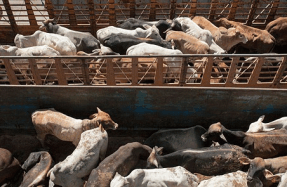International Arab journalists visit Israel Knesset

A group of journalists who are of Arab origin visited the Israeli Knesset between Monday and Wednesday this week and met Jewish parliamentarians, Israeli newspaper the Jerusalem Post reported.
The journalists, who work in France and Belgium, hail from Egypt, Lebanon, Algeria and Morocco, the paper said, adding they report for Egypt’s English language paper Al-Ahram, France24 news channel and other outlets.
The Jerusalem Post reported that the Israeli embassy in France organised the trip which saw the journalists meet with the Knesset’s Labour, Welfare and Health Committee Chairman Eli Alalouf to discuss issues affecting Arab residents of Israel.
When asked whether welfare is granted equally to Jews and Arabs, Jerusalem Post reported, Alalouf responded: “There are no racial laws. Every law applies to the whole population. A child is a child. We don’t look at who he is, gender or race.”
Alalouf also said that the law of return is applicable only for Jews, not the Palestinians. “It is only for Jews – we are a Jewish and democratic state. We can’t promise the Palestinians that they’ll return to Israel. It simply won’t happen.”
Israel bill to expel Palestinian families passes first vote
Journalists Mustafa Tossa of France24’s Arabic language channel asked about the cost of the ongoing conflict. In response Alalouf said: “It’s clear that there are economic advantages to peace. Peace is my life’s dream.”
Alalouf’s comments come contrary to laws passed in Israel this year which stripped Arabic of its designation as an official language alongside Hebrew, downgrading it to “special status” despite its use by almost two million Palestinian citizens of Israel who live in the country, one-fifth of the population.
Arab citizens of Israel often complain about the discriminatory policies they face including their limited employment possibilities as a result of the fact that a prerequisite to obtaining work is completing military service, something they are not eligible or wish to do.
Earlier this month the Knesset legislation committee approved 200 communities where non-Jewish inhabitants can be banned from living. At present, the majority of the 700 communities which enjoy this right are based in the Galilee.




